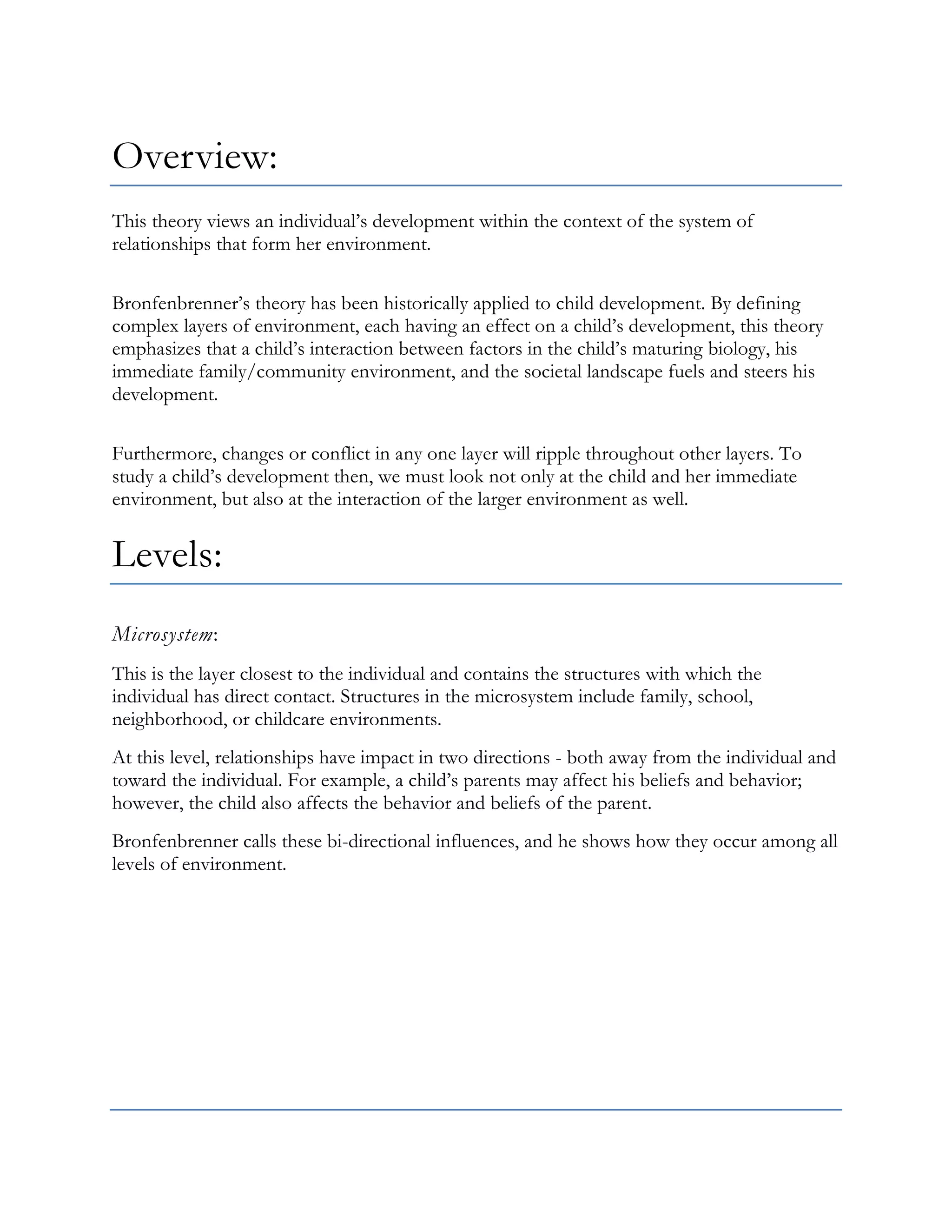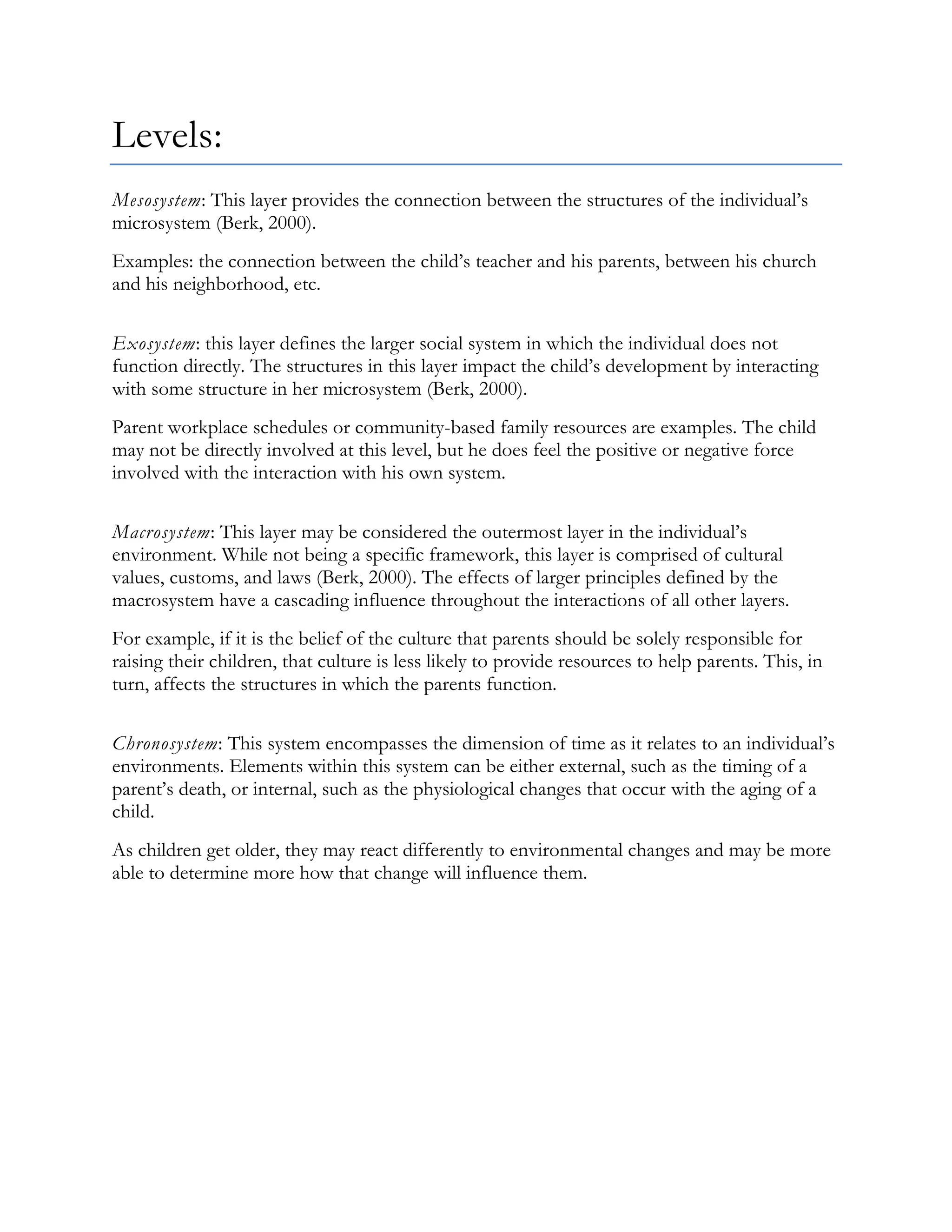This theory views child development as being shaped by complex environmental systems that influence each other. Bronfenbrenner defined layers of environment - the microsystem of immediate family/community, the mesosystem of connections between microsystems, the exosystem of broader social systems, the macrosystem of cultural values, and the chronosystem of time. Changes in one layer ripple throughout the others. The theory emphasizes that to understand a child's development, one must examine their interactions within these environmental systems and how they influence each other over time.


